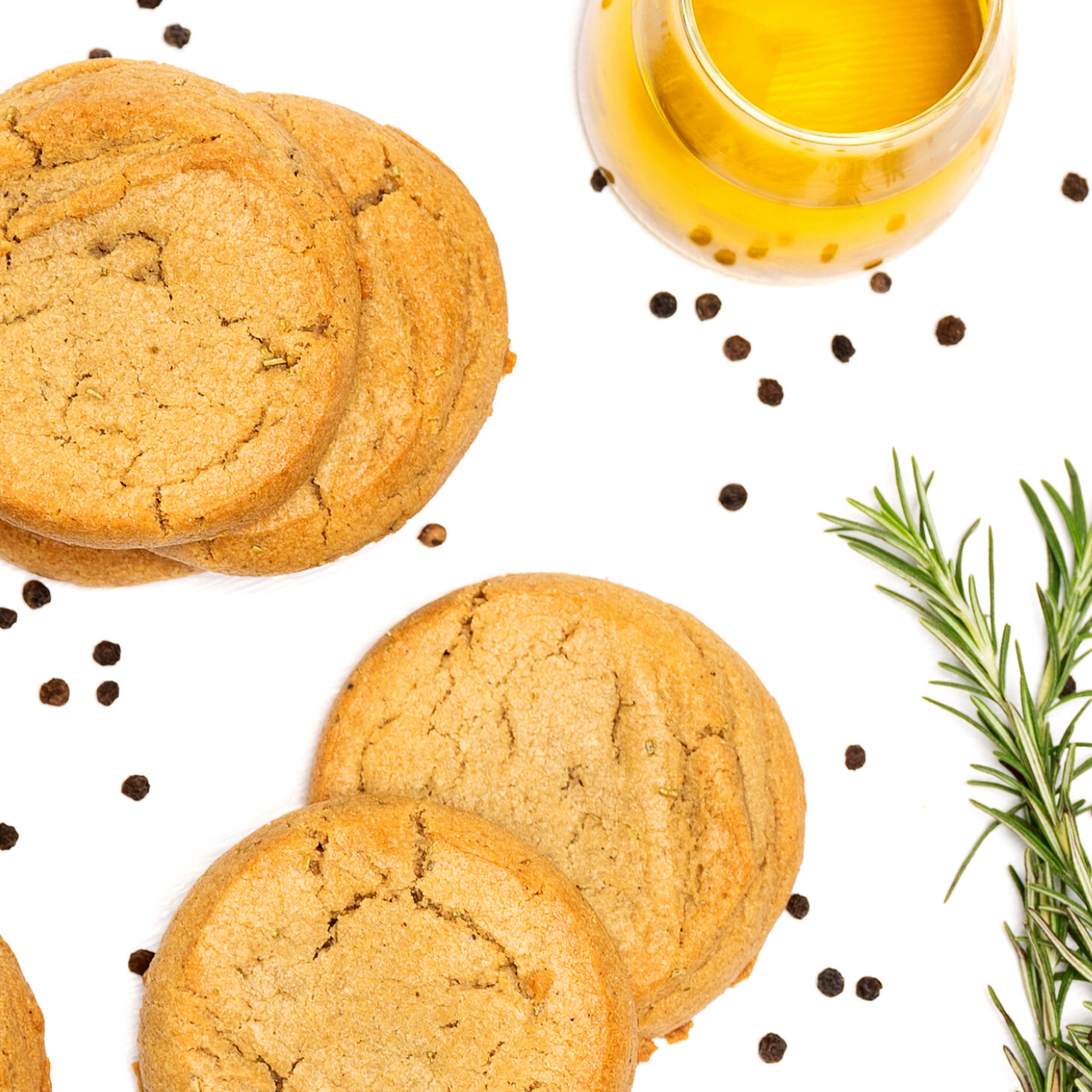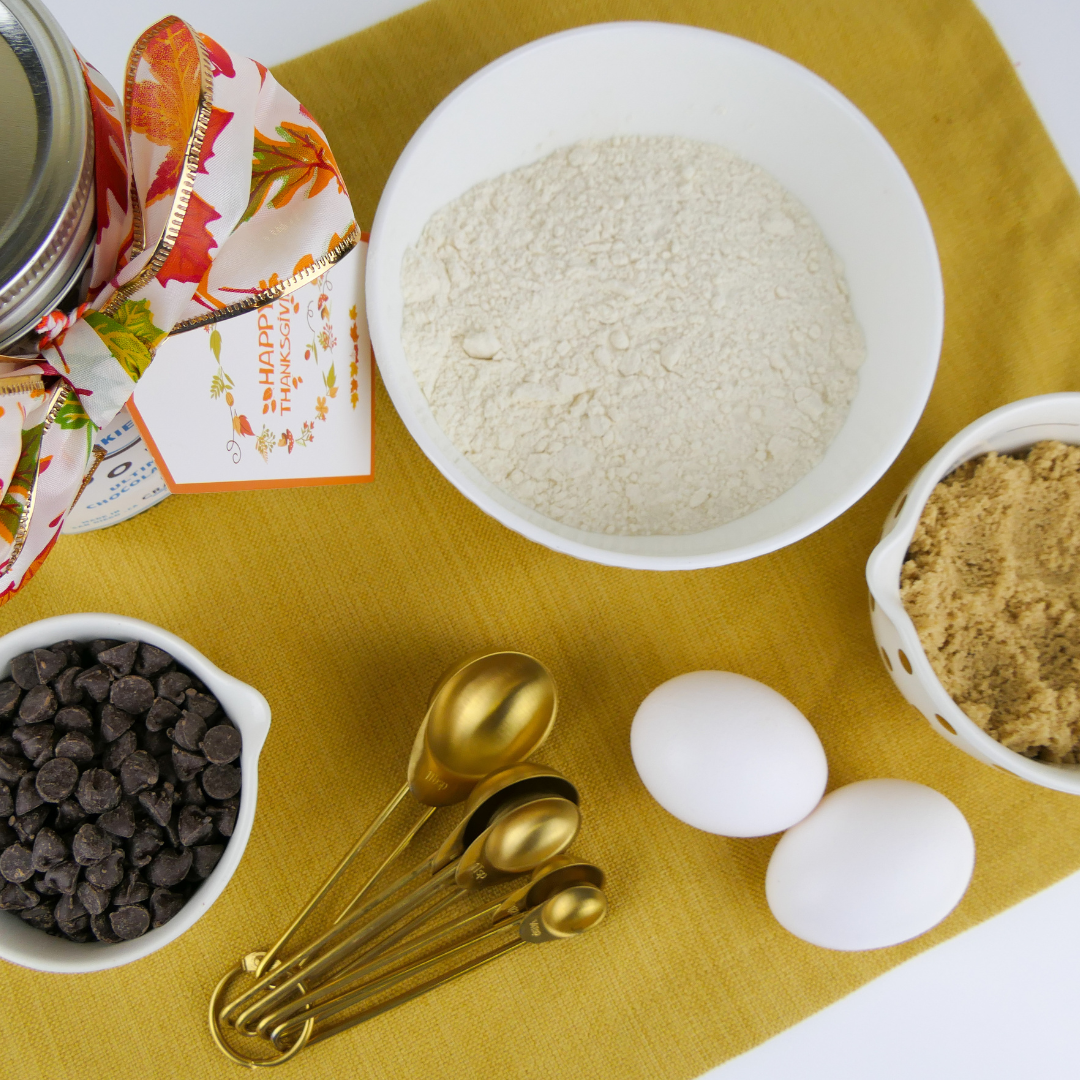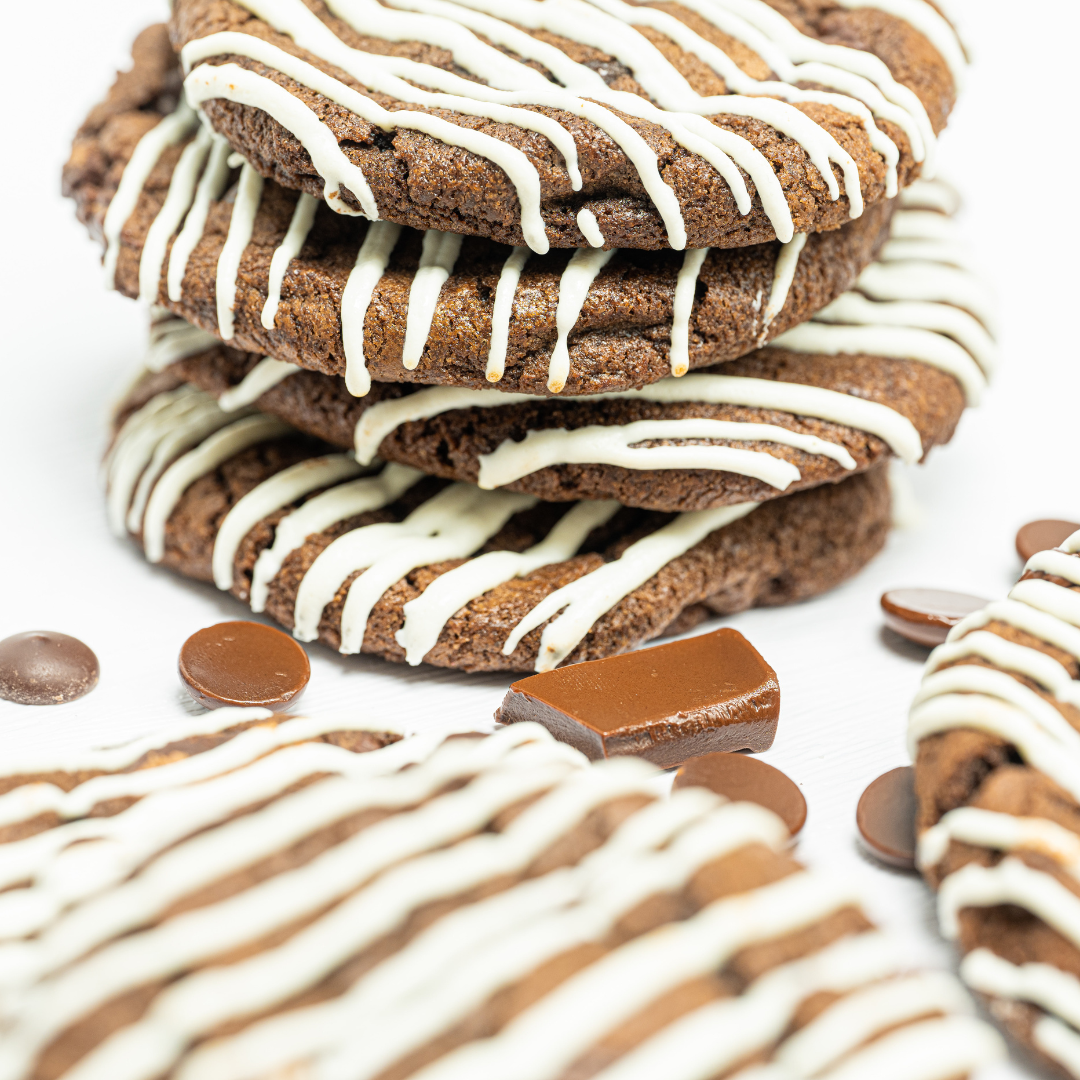If you want to achieve delicious and visually appealing baked goods, be that cookies, cupcakes, cakes, or others, using fat is non-negotiable. However, it’s up to you which type of fat you decide to use - butter or oil. Understanding the differences between butter vs oil in cookies can help you decide which one will work best for your recipe.
If you think about it, baking cookies is chemistry in its purest (and most delicious) form. Every ingredient offers unique properties, serving different purposes during the baking process.
But while there are ingredients you can substitute or omit, making your batch of homemade cookies without any fat is impossible. However, what can make a difference is the type of fat you use in your homemade chocolate chip cookie recipe.
Essentially, you have two options - butter and oil. And while some believe these two can be used interchangeably, that’s a rookie cookie mistake.
While they serve the same purpose when baking (which we’ll explain briefly), butter and oil come with several unique baking properties and benefits. What are these differences? Let’s find out, shall we?
What Is the Role of Fat in Baking?
First things first, a short chemistry lesson. Why is fat so essential for baking?
In simple terms, fat provides moisture, tenderness, and flavor to your baked goods, be it cookies, brownies, cakes, cupcakes, or anything else. In other words, fat determines the texture, structure, and overall quality of your cookies.
We think you can see where we’re heading with this. Baking without fat is like making a cheeseburger without cheese or guacamole without avocado. It simply doesn’t work.
But let’s discuss it in a little more detail.
First, fat helps keep baked goods moistgoods become moist and tender. When fat is mixed with flour and water, it creates a barrier that prevents the gluten from forming strong bonds, resulting in a softer and more tender texture. It also helps distribute heat evenly throughout the batter or dough, ensuring the cookies are cooked evenly and not overbaked.
The second vital role that fat plays in baking is providing flavor to your cookies. That’s because fat is a flavor carrier, meaning it enhances the taste and aroma of other ingredients. However, butter and oil do that differently, which we’ll discuss in a minute.
In addition to its functional and flavor-enhancing properties, fat in baking also helps to create a desirable appearance in the final product. It’s fat that gives cookies a golden brown color and shiny finish.
Butter vs. Oil in Baking Cookies: Key Differences
The primary difference between butter and oil is that butter is saturated fat, whereas oil (at least in most cases) is unsaturated fat. Simply put, butter stays solid at room temperature, while oils remain liquid.
Okay, but how does it impact your cookies?
Due to its liquid nature, using oil in cookies typically results in a denser texture. Also, because oil is 100% fat, it doesn’t react with flour the way butter does (butter contains water). Because of that, your cookies won’t be as fluffy. If you’re a fan of flat cookies, then using oil is an excellent option.
Butter, on the other hand, contains water which helps with leavening the dough. When using butter in cookies, the end result is a dense and gummy texture. That said, if you like your cookies soft and fluffy, using butter might provide you with better results.
Another difference is how butter and oil affect the cookie taste. In general, oil has a more neutral flavor than butter; unless it’s coconut oil we’re talking about. Therefore, it doesn’t provide much flavor itself but rather enriches other ingredients.
However, butter has that unique taste. And if there’s one thing many people love about their chocolate chip cookies, it’s that buttery flavor.
Oil vs. Butter in Cookies: Which Is Better?
It’s difficult for us to determine which one is better in cookies - oil or butter. Both offer different benefits when baking and can result in entirely different experiences. That said, let’s unravel what butter and oil offer, and you can decide which one to use to prepare the next batch of your favorite cookies.
Benefits of Baking Cookies with Butter
If you were to read most cookie recipes online, including the ones on our site, you would notice that most of them use butter as the primary source of fat. There are good reasons for that.
For example, butter adds richness and depth to the cookie's flavor. It has a distinct taste that is hard to replicate, which adds a buttery and creamy flavor to the cookies while at the same time enhancing other ingredients.
Butter also adds moisture to the cookie, keeping the cookies moist and chewy. Indeed, cookies made with butter are usually softer and more tender than those made with oils.
And last but not least, butter in cookies helps achieve that perfect texture. That’s because butter melts at a lower temperature than other fats, allowing cookies to spread evenly while baking. The result? That perfect cookie - crisp on the edges and soft in the center.
Benefits of Baking Cookies with Oil
While oil isn’t as popular in cookie recipes as butter, it offers several distinct advantages. Indeed, many people prefer to use vegetable oil instead of butter. Why?
For starters, using oil in your cookie recipe is a healthier alternative to butter. Butter is high in saturated fat, which can increase your risk of heart disease, whereas vegetable oil contains unsaturated fats, which are better for your heart health.
Additionally, if you're lactose intolerant or vegan, using oil instead of butter is a great way to enjoy delicious cookies without compromising your dietary restrictions.
Another reason people switch from butter to oil in baking is that using the latter is much more convenient. To use butter in your cookie recipe, you must first soften it to room temperature. Conversely, oil can be used straight from the bottle, saving you time and hassle.
Plus, since oil is liquid at room temperature, it's easier to mix into your cookie dough.
Wrapping Up
So, which one to use for baking cookies? Oil or butter? There’s no right or wrong answer here, as both offer distinct but delicious properties.
As with all recipes, everyone is free to experiment. With both butter and vegetable oil providing excellent results, you can be sure that your next batch of chocolate chip cookies will leave your oven as delicious as always, be it using butter or oil.








